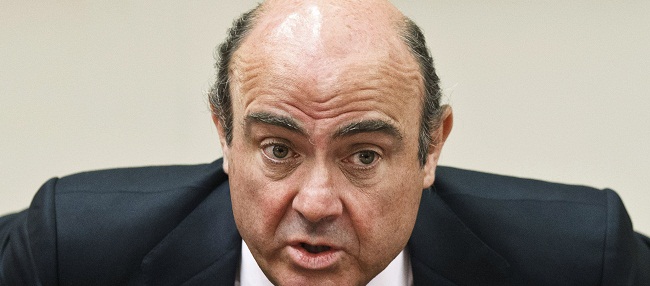The Spanish financial rescue is in the doldrums, even if the financial sector lives in a milder climate following the risk premium steep fall in the aftermath of the bold move by the European Central Bank. But things might turn nasty again should renewed doubts unwind the encouraging trend.
This industry badly needs a thorough cleaning up involving huge resources. Yet the €100 billion earmarked for the salvaging operation still stands far away from delivery. Spain will unveil the banking shortcomings at next week close and ask for a concrete amount of help. Brussels might take at least one extra month in examining the restructuring plans before loosening the strings of its purse.
But the roadmap leading to the safe shore will be confronted with the formidable hurdle that the single bad bank for draining the impaired assets represents.
Most observers point to the transfer price as the key issue to be solved. A higher price than warranted would turn into a fat bill to be footed by taxpayers in future. A lower than reasonable price is likely to further damage the balance sheets.
No one seems to underlie the basic flaw this initiative entails. A backstop entity lacking any link with individual banks having awarded and frequently refinanced bad loans is poorly equipped to persuade debtors in paying their due amounts.
In the absence of any real capacity to perform the essential task of recovering pending obligations, debtors might be tempted to withdrawing payments and banks to dumping their doubtful portfolio. At any given transfer price, the chances of substantially increased public involvement will inevitably run higher. An ugly prospect that would feed into bloating debt and deficit levels at the most unfavourable time.
Even solvent entities are eager to have access to this wreckage disposal site. A clear omen they are ready to choose the easy going conduct of throwing to the dustbin their impaired assets.
Who might bother enforcing an enhanced recovery policy if you can cash right away unreliable loans?
Should discipline falter in this key issue, the potential losses might snowball. A single bad bank only offers effective added value in performing tasks individual banks are not acquainted with. Selling real estate stemming from foreclosures stands as a good example. Transferring loans, simply because they are bad, amounts to the worst policy. Spain can still reshape this initiative in a sound way. A few weeks from now on, it might be too late.






Be the first to comment on "Madrid must rethink this bad bank"